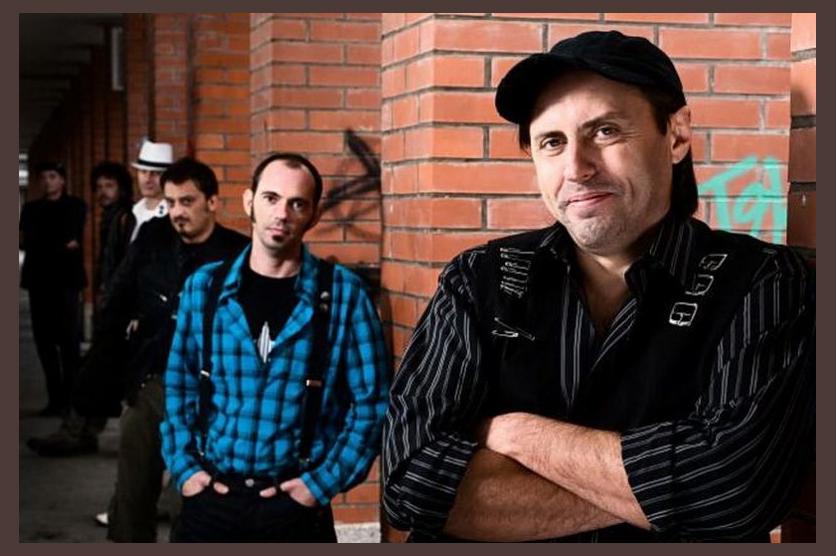 Zabranjeno Pusenje
Zabranjeno Pusenje
Zabranjeno Pušenje: The Outspoken Voice of Bosnian Anti-Authoritarianism
Amidst the tumultuous socio-political landscape of the former Yugoslavia, a band emerged that defied censorship and became a symbol of resistance against oppression: Zabranjeno Pušenje (Forbidden Smoking). Known for their incisive lyrics and biting wit, the band's music resonated profoundly with the disenfranchised youth of the region.
Challenges and Controversies
Zabranjeno Pušenje's journey was fraught with challenges. Their songs often ran afoul of authorities for their critique of the political establishment, leading to bans and even imprisonment for band members. In 1984, their concert in Belgrade was abruptly canceled, and fans erupted into riots. Despite the backlash, the band remained steadfast in their commitment to free expression.
Members
The core lineup of Zabranjeno Pušenje consisted of:
* Nele Karajlić (vocals)
* Davor Sučić (guitar)
* Sejo Sexon (bass)
* Branko "Johnny" Dejanović (drums)
Discography
Zabranjeno Pušenje released a string of critically acclaimed albums throughout their career, including:
* "Das ist Walter" (1984)
* "Dok čekaš sabah sa šejtanom" (1985)
* "Male priče o velikim ljubavima" (1986)
* "Poslednji dani" (1989)
* "Srce, ruke, glava" (2001)
"Otpor, Stoko!"
One of Zabranjeno Pušenje's most iconic songs is "Otpor, Stoko" (Resist, Herd), released in 1989. The song became an anthem for the anti-war movement that erupted in Yugoslavia during the 1990s. Its lyrics excoriated the blind patriotism and apathy that fueled the conflict, urging listeners to rise up against tyranny.
Legacy
Zabranjeno Pušenje's legacy extends far beyond the music they created. Their outspokenness inspired countless others to confront authority and fight for their beliefs. The band's message of resistance continues to resonate in societies around the world, where the struggle for freedom of expression remains an ongoing battle.
Amidst the tumultuous socio-political landscape of the former Yugoslavia, a band emerged that defied censorship and became a symbol of resistance against oppression: Zabranjeno Pušenje (Forbidden Smoking). Known for their incisive lyrics and biting wit, the band's music resonated profoundly with the disenfranchised youth of the region.
Challenges and Controversies
Zabranjeno Pušenje's journey was fraught with challenges. Their songs often ran afoul of authorities for their critique of the political establishment, leading to bans and even imprisonment for band members. In 1984, their concert in Belgrade was abruptly canceled, and fans erupted into riots. Despite the backlash, the band remained steadfast in their commitment to free expression.
Members
The core lineup of Zabranjeno Pušenje consisted of:
* Nele Karajlić (vocals)
* Davor Sučić (guitar)
* Sejo Sexon (bass)
* Branko "Johnny" Dejanović (drums)
Discography
Zabranjeno Pušenje released a string of critically acclaimed albums throughout their career, including:
* "Das ist Walter" (1984)
* "Dok čekaš sabah sa šejtanom" (1985)
* "Male priče o velikim ljubavima" (1986)
* "Poslednji dani" (1989)
* "Srce, ruke, glava" (2001)
"Otpor, Stoko!"
One of Zabranjeno Pušenje's most iconic songs is "Otpor, Stoko" (Resist, Herd), released in 1989. The song became an anthem for the anti-war movement that erupted in Yugoslavia during the 1990s. Its lyrics excoriated the blind patriotism and apathy that fueled the conflict, urging listeners to rise up against tyranny.
Legacy
Zabranjeno Pušenje's legacy extends far beyond the music they created. Their outspokenness inspired countless others to confront authority and fight for their beliefs. The band's message of resistance continues to resonate in societies around the world, where the struggle for freedom of expression remains an ongoing battle.